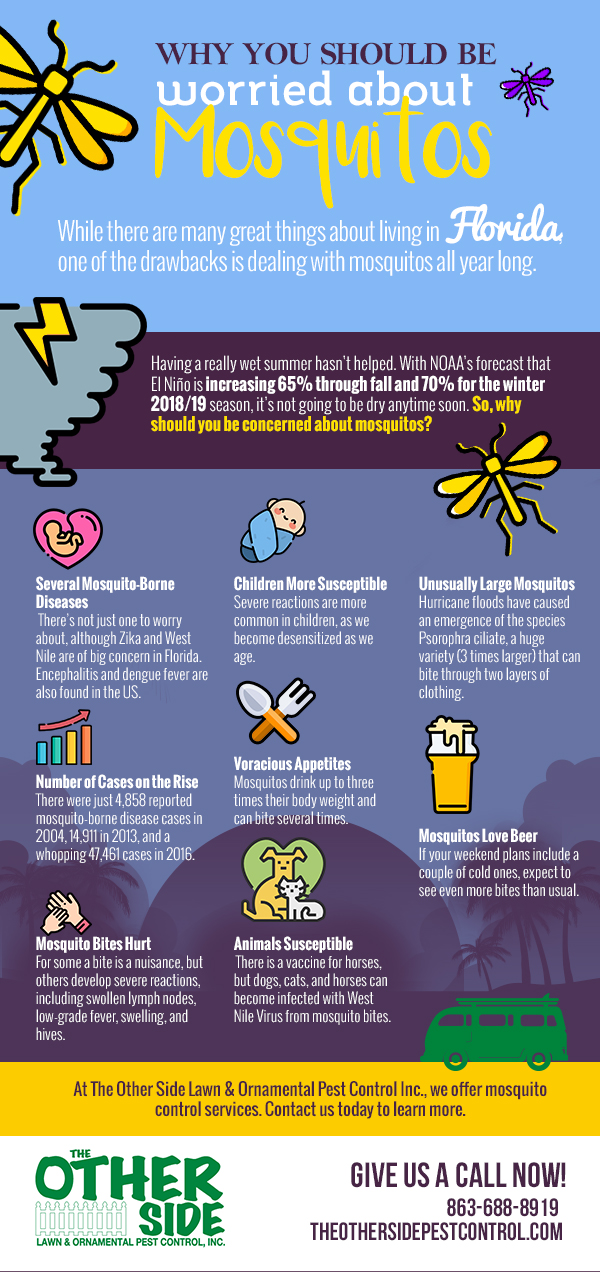Looking Into Advanced Techniques Employed By Insect Management Professionals
Looking Into Advanced Techniques Employed By Insect Management Professionals
Blog Article
Written By-Tran Paaske
Are you tired of relying entirely on sprays to take care of parasites in your home or work environment? While sprays can work, pest control specialists have developed advanced methods that surpass just splashing chemicals.
These strategies not only supply much more reliable and durable options, but also focus on decreasing using dangerous chemicals. By discovering these advanced strategies, you will find a whole brand-new world of insect control approaches that are not just effective, but likewise environmentally friendly.
So, are you ready to take your parasite control game to the following degree?
Integrated Pest Administration (IPM)
If you're seeking an effective and environmentally-friendly method to pest control, Integrated Pest Management (IPM) is the remedy you need. IPM focuses on lasting avoidance and management of parasites, as opposed to merely depending on chemicals. This approach considers the certain demands and habits of insects, along with the surrounding setting.
By utilizing a mix of techniques such as organic control, environment adjustment, and targeted chemical use, IPM intends to lower the dependence on chemical therapies and lessen injury to non-target microorganisms.
One crucial element of IPM is monitoring and identifying pests accurately. This includes consistently checking and examining the pest populace, in addition to determining the certain species present. By understanding the biology and habits of pests, parasite control experts can establish targeted approaches to interrupt their life cycle and minimize their numbers.
An additional important aspect of IPM is making use of non-chemical control techniques whenever possible. This can consist of physical barriers, such as installing displays or securing cracks and openings, to stop insects from entering buildings. Additionally, cultural techniques, like proper sanitation and waste management, can aid get rid of bug food resources and reproducing grounds.
When chemicals are needed, IPM concentrates on using them deliberately and as a last option. This indicates choosing the least poisonous and most efficient alternative, applying it exactly and only to affected areas, and complying with all safety standards. By reducing chemical usage, IPM lowers the possible risks to human health and wellness and the setting.
Biological Control
To further boost the effectiveness of Integrated Insect Management (IPM), the following subtopic we'll explore is the approach of biological control. This method makes use of natural killers or bloodsuckers to manage bugs.
https://dgpestcontrolquincyil.z13.web.core.windows.net/ are four vital elements of organic control:.
1. Introduction of all-natural opponents: In this approach, advantageous bugs or organisms are introduced to the location plagued with bugs. These natural enemies exploit the parasites, helping to decrease their population.
2. Conservation of all-natural adversaries: Rather than presenting brand-new microorganisms, this strategy concentrates on producing an appropriate atmosphere for existing advantageous bugs. This can be attained via giving food, sanctuary, and water sources.
3. Augmentation: Here, the variety of natural adversaries is raised synthetically by breeding and releasing them right into the ravaged location. This aids to swiftly lower the pest population.
4. Push-pull strategy: This method integrates repellents and attractants to adjust the behavior of pests. Repellents press insects far from plants, while attractants lure them in the direction of catch crops or locations where they can be easily regulated.
Habitat Alteration
Environment alteration plays a vital duty in insect control by altering the environment to prevent insect problems. By making changes to the physical characteristics of a room, you can develop an unwelcoming atmosphere for parasites, making it harder for them to endure and thrive.
One usual approach of environment modification is eliminating or decreasing possible food resources for bugs. This can consist of appropriate waste administration, sealing containers, and tidying up food crumbs.
In addition, removing or decreasing areas of standing water can aid control parasites like mosquitoes.
Altering https://www.staugustine.com/story/news/local/2023/04/07/local-wild-bird-rescue-meeting-greater-needs/70075893007/ by trimming trees and shrubs away from buildings can additionally prevent pests from accessing your residential or commercial property.
Final thought.
So there you have it - the sophisticated strategies made use of by insect control experts exceed simply spraying chemicals. Integrated Insect Management (IPM) integrates numerous approaches to properly manage parasites, while organic control harnesses natural opponents to maintain insect populations in check.
Environment adjustment also plays a critical duty in avoiding bug invasions.
Did you recognize that according to a research, executing IPM strategies reduced pesticide usage by an average of 71%? This not just protects our health and wellness and the environment yet likewise saves cash in the long run.
